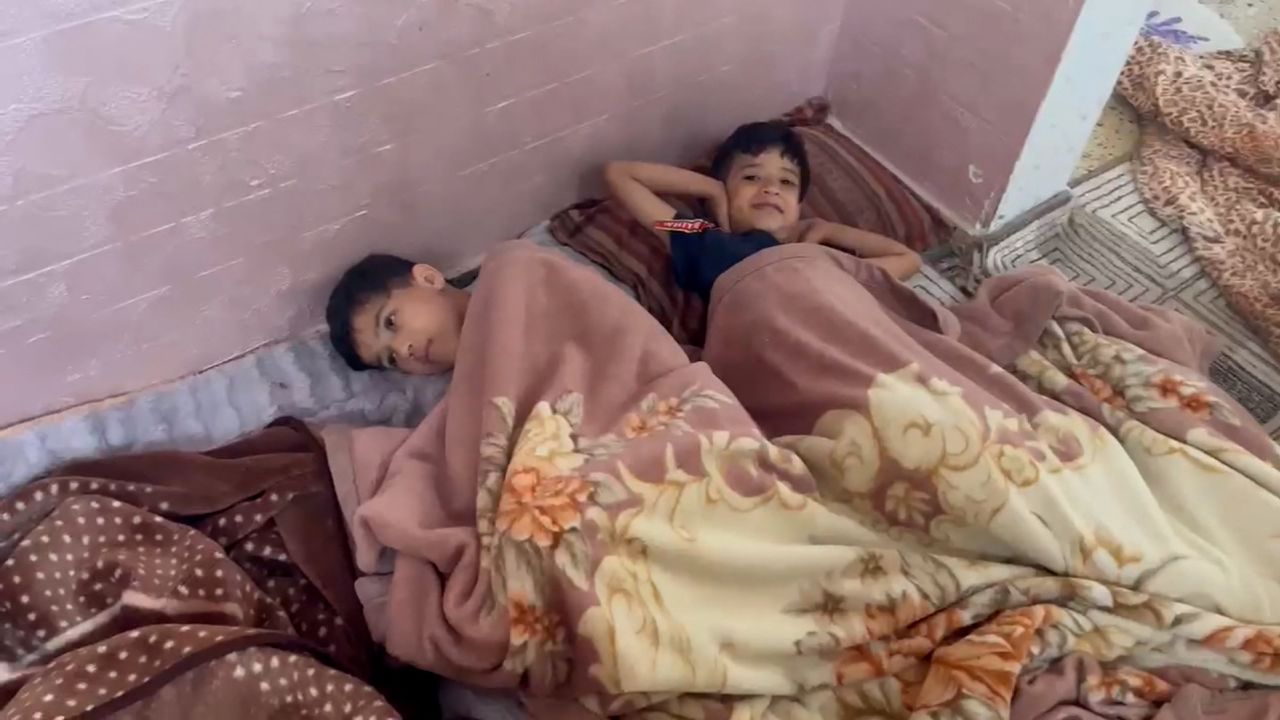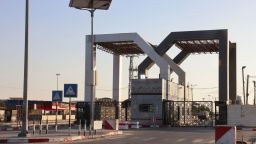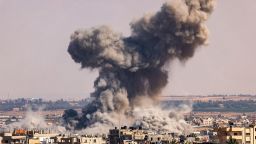Shortages of food, fuel and electricity in Gaza “are going to kill many, many people,” a senior aid official warned Friday, as Israel’s siege and bombardment of the enclave approached the two-week mark, while life-saving aid was again stuck in Egypt for another day.
A spokesperson for the Palestinian Ministry of Health in Gaza said Friday that seven hospitals and 21 primary care health centers had been rendered “out of service,” and 64 medical staff have been killed, as Israel continues its airstrikes on Gaza.
“It is absolutely life or death at this point,” Avril Benoit, executive director for Doctors Without Borders, also known as Médecins Sans Frontières (MSF), told CNN.
Among those trapped in Gaza are the hostages captured by Hamas during its brutal terror attack on October 7. In an update Friday the Israel Defense Forces said the majority of the hostages are alive. It said the number of missing is between 100-200, and more than 20 of the hostages are under the age of 18.
Two American hostages, a mother and her daughter, are being released for humanitarian reasons, a person familiar with the negotiations for their release and a diplomatic source said Friday. It’s unclear whether they will go to Egypt or Israel.
Meanwhile, Israeli leaders have rallied troops ahead of a potential ground incursion. The IDF has mobilized more than 300,000 reservists as it seeks to “destroy” Hamas and prevent it from launching further attacks on Israeli soil.
In a speech from the Oval Office Thursday, US President Joe Biden reiterated his government’s support for Israel’s war against Hamas, casting it as vital to America’s national security. But he cautioned the Israeli government not to be “blinded by rage” and drew a clear distinction between Hamas and the Palestinian people, calling for civilians in Gaza to be protected.
Any Israeli ground incursion will come amid a growing chorus of outrage across the Arab world, where mass anti-Israel protests have broken out earlier in the week and on Friday in support of 2.2 million Palestinians who remain trapped in Gaza.
United Nations Secretary-General Antonio Guterres warned the Middle East had entered “a moment of profound crisis… unlike any the region has seen in decades.”
Israeli leaders on Friday ordered the evacuation of some 23,000 residents living near the border with Lebanon, amid sustained crossfire with the Iran-backed militant group Hezbollah. IDF spokesperson Lt. Col. Peter Lerner told CNN that the IDF had bolstered its forces along the northern border and was prepared for a “broader conflict.”
Aid supplies in limbo
Around 200 trucks carrying vital aid destined for Gaza remain stuck in Egypt, despite a frantic diplomatic effort to open the Rafah crossing. Negotiations continued through Thursday as workers filled dangerous road craters from Israeli bombing to allow up to 20 trucks to pass in an initial delivery.
Video released Friday by the Sinai Foundation for Human Rights showed “repair work and paving the road between the Egyptian and Palestinian sides” at the Rafah crossing. Egyptian authorities worked to remove cement blocks at the entrance to the crossing in preparation for its opening, several drivers at the crossing told CNN.
But the possible initial passage of 20 trucks would be far lower than usual. “We need to build up to the 100 trucks a day that used to be the case of the aid program going into Gaza,” UN relief chief Martin Griffiths said in an interview with CNN’s Christiane Amanpour.
“We need to be able to have the assurance that we can go in at scale everyday – deliberately, repetitively and reliably,” Griffiths said.
Guterres traveled to the Rafah crossing on Friday as part of the UN’s efforts to help aid reach Gaza.
“Behind these walls, we have two million people that are suffering enormously. So, these trucks are not just trucks, they are a lifeline. They are the difference between life and death,” Guterres said at a press conference held on the Egyptian side of the border.
A CNN team on the ground attended the press conference and witnessed a protest by several hundred demonstrators break out after Guterres finished his speech. Guterres was then forced to leave the Rafah gate earlier than planned as the protest began to get out of control.

As well as the trucks, a plane carrying World Health Organization supplies for Gaza landed in Egypt’s Al Arish airport Friday morning, the WHO regional office wrote on X. It said the package included “surgical supplies and instruments for 1000 medical operations, water tanks and tents.”
But how much difference the initial deliveries will be able to make for the more than 2 million people living in Gaza is unclear. A group of UN independent experts accused Israel of committing “crimes against humanity” in its current campaign.
“The complete siege of Gaza coupled with unfeasible evacuation orders and forcible population transfers, is a violation of international humanitarian and criminal law. It is also unspeakably cruel,” the UN Human Rights Office said Thursday in a press release.
Doctors Without Borders said Thursday Gaza’s main medical facility, the Al-Shifa Hospital, only had enough fuel to last 24 hours.
“Without electricity many patients will die,” said Guillemette Thomas, the group’s medical coordinator for Palestine, based in Jerusalem. Thousands of Palestinians are using Al-Shifa hospital as a safe haven from constant bombing, he added.
Many supermarkets have no more food to sell, and everyday tasks have become grueling for residents who queue for hours for food and water under the roar of airstrikes.
“There is no life now… It’s just trying to survive. That’s it,” a Palestinian man living in Gaza, who wished to remain anonymous, told CNN.
The population of southern Gaza has swelled in recent days after the Israeli military told around 1 million residents to leave northern Gaza ahead of the expected Israeli ground incursion.
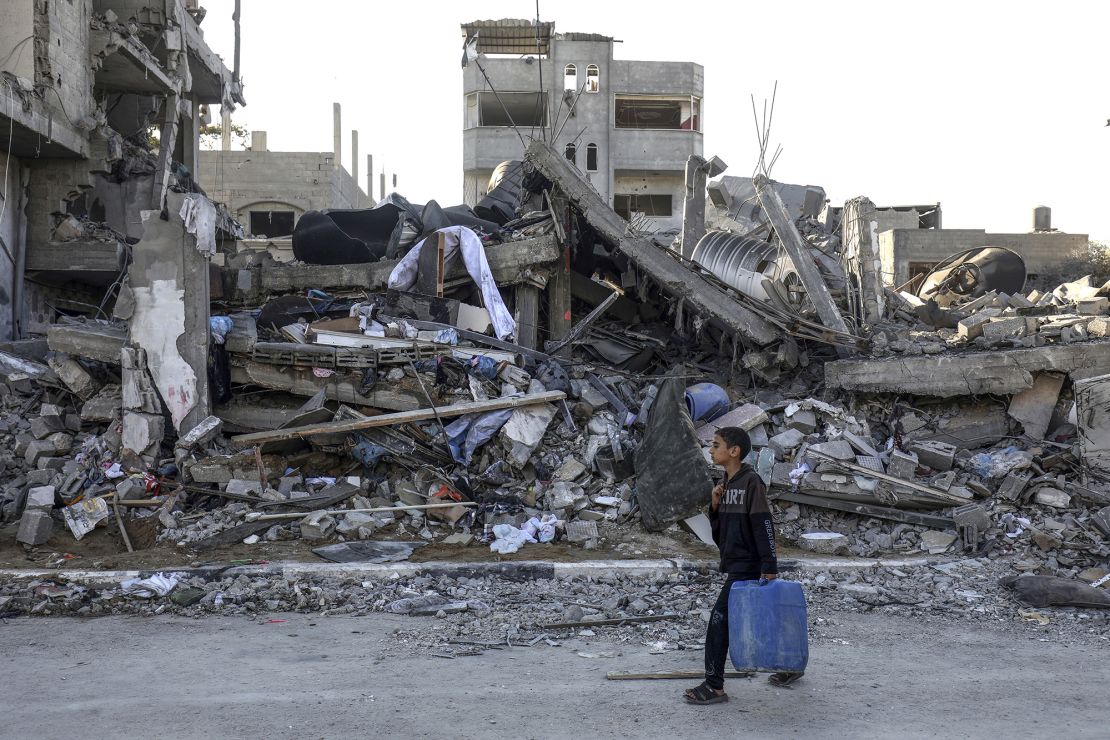
Israeli troops will soon see Gaza ‘from the inside’
Israel’s sustained assault on Gaza follows Hamas’ murderous rampage on October 7 that killed an estimated 1,400 people in Israel, mostly civilians, in what has been described as the worst massacre of Jews since the Holocaust.
In the days since, Israeli airstrikes have killed more than 4,100 people in Gaza, including hundreds of women and children, according to the Health Ministry in Gaza, which is controlled by Hamas.
The violence has spread beyond Gaza: The ministry said at least 81 people had been killed in the occupied West Bank since October 7. Israel also arrested more than 60 suspected Hamas operatives in the West Bank early Thursday.
Among those detained during raids was Hamas spokesperson Hassan Yousef, Israeli authorities confirmed Friday. Yousef is a leading Palestinian political figure serving as the official Hamas spokesperson in the West Bank and holding a seat on the Palestinian Legislative Council.
Meanwhile, Israel appears set to launch its ground offensive into Gaza. Israeli defense minister Yoav Gallant told troops gathered not far from the Gaza Strip on Thursday that they will “soon see” the enclave “from the inside.”
Early Friday morning, CNN’s Nic Robertson witnessed increased military activity along Israel’s border with Gaza. Several illumination flares were seen floating down in the distance while red tracer rounds were accompanied by the sound of heavy machine gun fire. CNN could not verify what the night-time military activity was.
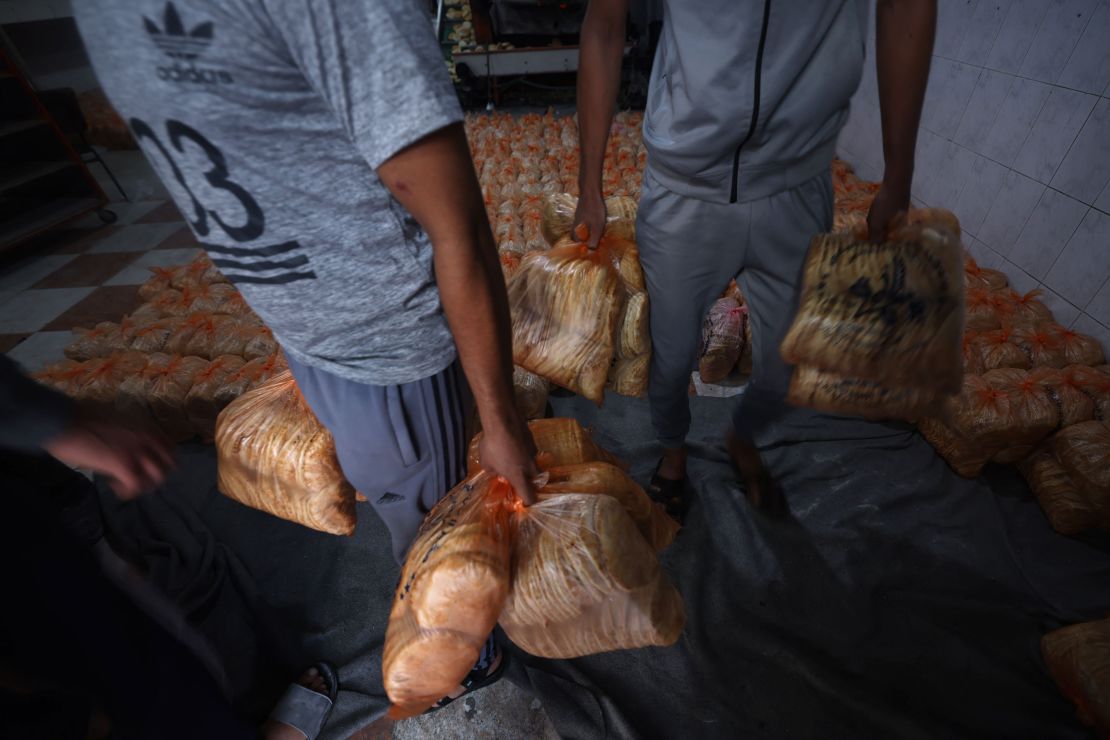
Protests in the Middle East
Any Israeli incursion will further inflame the outrage that has spread across much of the Arab world. Huge protests broke out in several Middle Eastern countries this week after an explosion at the Al-Ahli hospital in southern Gaza, which Hamas officials said was caused by an Israeli airstrike that had killed 500 people.
Thousands of protesters shouting anti-Israel slogans gathered in Lebanon, Iraq, Jordan, Kuwait, Egypt and Tunisia. Several Arab countries, including Saudi Arabia, Jordan, Egypt, the United Arab Emirates and Iraq issued statements condemning Israel and accusing its military of bombing the hospital.
But Israel has since presented evidence that it said shows the blast was caused by a misfire by militant group Islamic Jihad. US President Joe Biden backed Israel’s explanation, citing US intelligence.
“Israel Probably Did Not Bomb Gaza Strip Hospital: We judge that Israel was not responsible for an explosion that killed hundreds of civilians yesterday [17 October] at the Al Ahli Hospital in the Gaza Strip,” read an unclassified intelligence assessment obtained by CNN. The assessment also estimated the number of deaths was at the “low end of the 100-to-300 spectrum.”
But the subsequent revelations have done little to quell the rage across the Middle East.
“Everybody here believes that Israel is responsible for it,” Jordanian Foreign Minister Ayman Safadi told CNN Wednesday. “The Israeli army is saying it’s not but… try and find anybody who’s going to believe it in this part of the world.”
Fresh protests began Friday, with thousands taking to the streets in Egypt, Jordan, Lebanon, Iraq, Yemen and the West Bank after Islamic Friday prayers.
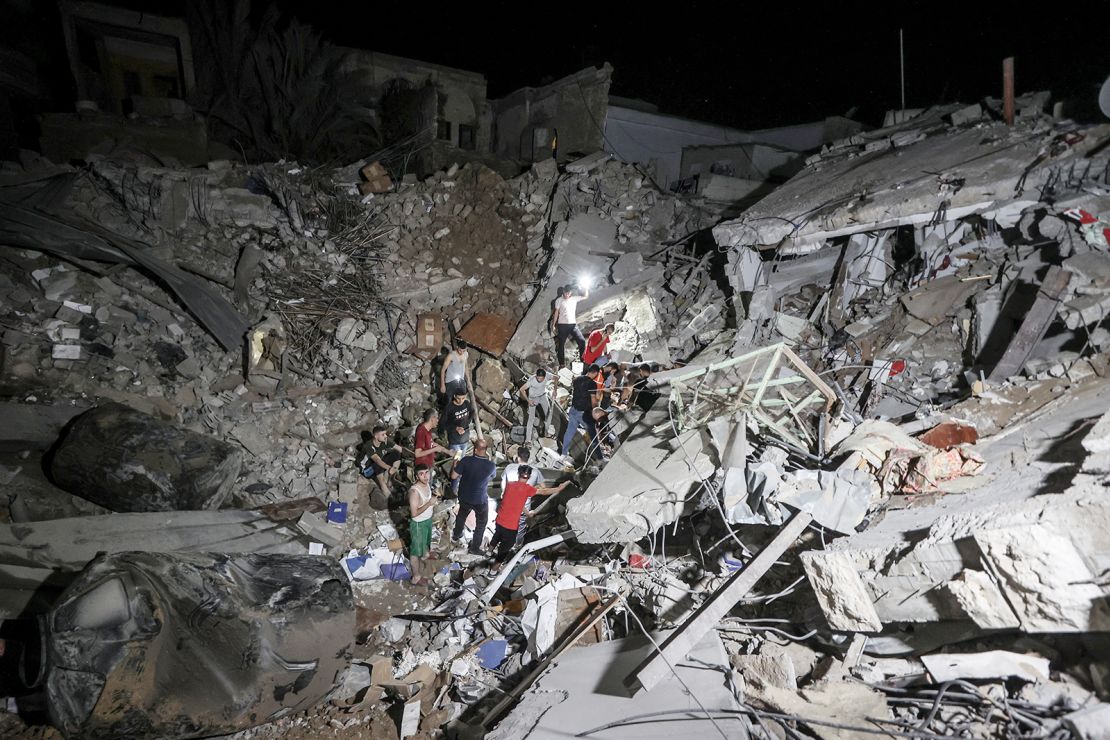
The protests began in the wake of a separate explosion at Gaza’s oldest church. St. Porphyrius Greek Orthodox Church in central Gaza City said its compound was hit by an Israeli airstrike Thursday night.
Video from the ground in Gaza City showed the damage at the site of the church and its surrounding area. The main impact of the strike heavily damaged a building next to the church compound. One church building was partially collapsed by the airstrike, according to CNN’s analysis of the video.
The footage from the ground also shows people working to search through rubble for any bodies. At one point, a group can be seen dragging a body wrapped in a blanket out of the rubble and through a small crowd, as many pull out their cameras and phones to record the moment. Other people can be seen grieving and crying.
Earlier Friday, the Palestinian Ministry of Health said that 17 people were killed in the Israeli strike on the church on Thursday night. CNN cannot independently confirm the number of casualties. A Hamas statement about the incident mentioned “a number of casualties” but did say how many.
The IDF has said it will have more information on the strike, but it did not respond to CNN questions on when that information would be available. The IDF on Friday acknowledged that “a wall of a church in the area was damaged” as a result of an IDF strike.
CNN’s Mohammed Tawfeeq, Tamar Michaelis, Daniel Oz, Nic Robertson, Muhammad Darwish, Jake Tapper, Jennifer Hansler, Alex Marquardt, Sahar Akbarzai, Allegra Goodwin, Duarte Mendonca, Paul Murphy and Jo Shelley contributed reporting.

